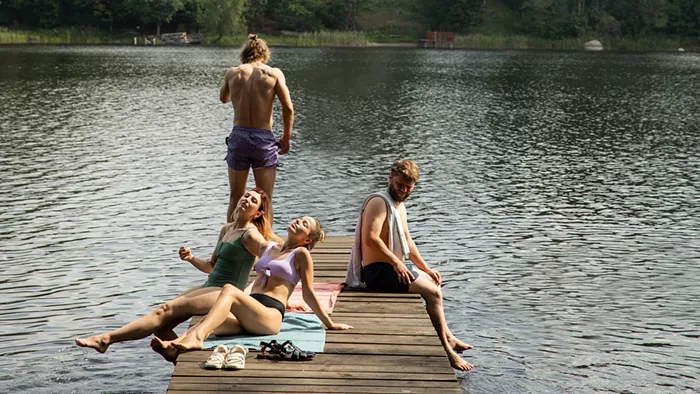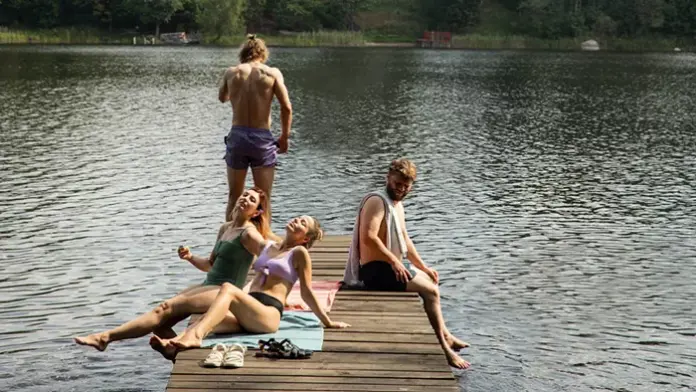This post was originally published on this site

Drowning Dry, a film by Lithuanian director Laurynas Bareiša, begins in the middle of a mixed martial arts competition. It’s brutal. It’s savage. It’s what the key character of this movie, Lukas (Paulius Markevičius), calls a living. And he wins, despite being beaten to a pulp. After celebrating this Pyrrhic victory, he and his family (wife, son, sister-in-law, brother-in-law, niece) go to a country house by a lake to relax. Slowly, however, cracks begin to appear. Lukas’s wife, Ernesta (Gelminė Glemžaitė), wants, among other demands, the professional fighting to end. The time to grow up and settle down has arrived.
As the film progresses, it becomes clear that this, and other cracks in Lukas’ immediate and extended family, are very human cracks: youth is departing, the marriages are cooling, the children are growing in importance. But the film doesn’t end there, with the usual family story about the facts of life.. It instead takes a sharp philosophical turn into a dark anthropology that’s expressed in two narrative modes: one in which little happens slowly, and one in which a lot happens slowly.
When the latter occurs, we are exposed to the terrifying frailty of the human condition. There is nothing that can protect this or any family from an intimate catastrophe. We love our partners, our children, our parents, our siblings always with the real risk of losing any one of them suddenly and often inexplicably. And so it is with this film. When we are settled, life moves along. When tragedy strikes, the world becomes a blur in slow motion.
To intensify the experience of the modes (the casual-gradual and the intense-gradual), Dry Drowning, which is masterfully directed and performed, employs only diegetic music and naturalistic lighting and shot positions. The result is, for me, the best movie I have seen so far this year.
Drowning Dry screens at Northwest Film Forum Fri Aug 15–Sun Aug 17, times vary.



















